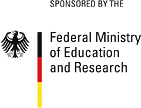Second Summer School 2011: "Interdependent Inequalities in a Global Perspective. Class, Racial, Gender and Ethnic Asymmetries in Latin America", Buenos Aires, Argentina October 31 - November 4, 2011
Partner: Instituto de Desarrollo Economico y Social (IDES), Buenos Aires, Argentina
For more information please see summer school program in Spanish.
The Second Summer School on Interdependent Inequalities, organized jointly by desiguALdades.net and IDES (Instituto de Desarrollo Económico y Social), will take place in Buenos Aires, from October 31 to November 4, 2011. The organizers will welcome up to 30 junior researchers from around the world for this intensive program, including participants from desiguALdades.net, participants from IDES, and external participants from Latin America. The deadline for application is closed.
The organizers
desiguALdades.net is an interdisciplinary, international, and multi-institutional research network on social inequalities in Latin America, supported by the Bundesministerium für Bildung und Forschung (BMBF, German Federal Ministry of Education and Research) in the frame of its funding line on area studies. The Lateinamerika-Institut of the Freie Universität Berlin (LAI, Institute for Latin American Studies), and the Ibero-Amerikanisches Institut of the Stiftung Preussischer Kulturbesitz (IAI, Ibero-American Institute of the Prussian Cultural Heritage Foundation, Berlin) are in charge of the research network.
The Instituto de Desarrollo Económico y Social (IDES) in Buenos Aires is an academically independent organization which is devoted to the study of economic, social, historical, political and cultural issues. Its activities are organized around three basic areas: (a) research programs; (b) graduate seminars and degrees; (c) the publications and dissemination program, which includes the journal Desarrollo Económico, published since 1961. IDES is home to several research centers and study groups, and promotes interdisciplinary exchanges among national and international experts with an emphasis on issues applicable to Argentina and Latin America.
Scope of the Summer School
Following up on the first Summer School on Interdependent Inequalities (São Paulo, Brazil, November 2010) which mainly focused on transregional configurations of inequalities, with the second Summer School it is intended to create space for researchers to explore the different axes through which inequalities are produced and reproduced in Latin America. Social sciences have studied social inequalities as a process framed within national borders and essentially articulated by the concept of stratification/class. Recent studies have convincingly challenged these assumptions, indicating that:
(a) The class axis cannot be considered in and of itself, insofar as the axis is interdependent with multiple ascriptions such as gender, race and ethnicity.
(b) Social inequalities are part of larger processes that reflect interdependencies between different local contexts and regions of the world. This means that social categories have been constructed and reconstructed in line with historical and contemporary entanglements such as colonialism, slavery, migrations and world circulation of goods and services.
In the second Summer School, desiguALdades.net aims to promote a vivid debate about these advances observed in current research on inequalities. The central objective is to discuss, at a theoretical level as well as at the level of empirical developments in Latin America, how different dynamics of social inequalities operate and how they are interconnected with each other, nationally and globally.
Contents
- Classes, workshops and lectures with international specialists.
- Discussions of research proposals prepared in advance by the participants.
- Interdisciplinary readings (a basic bibliography will be distributed in advance).
- Field visits to urban areas and social projects related to topics discussed in the Summer School.
The activities will be at a postgraduate/PhD level.
Languages: Spanish and English.
The organizers assume the candidates are fluent in at least one of the working languages (English or Spanish). They should also have at least good passive knowledge (listening and reading comprehension) in the second language.
Participants
The main target group of the Summer School are doctoral students from different Social Sciences disciplines with interests in inequalities in Latin American contexts. In addition, postdoctoral researchers who have recently (no more than three years) concluded their doctoral studies are also welcomed to apply.

